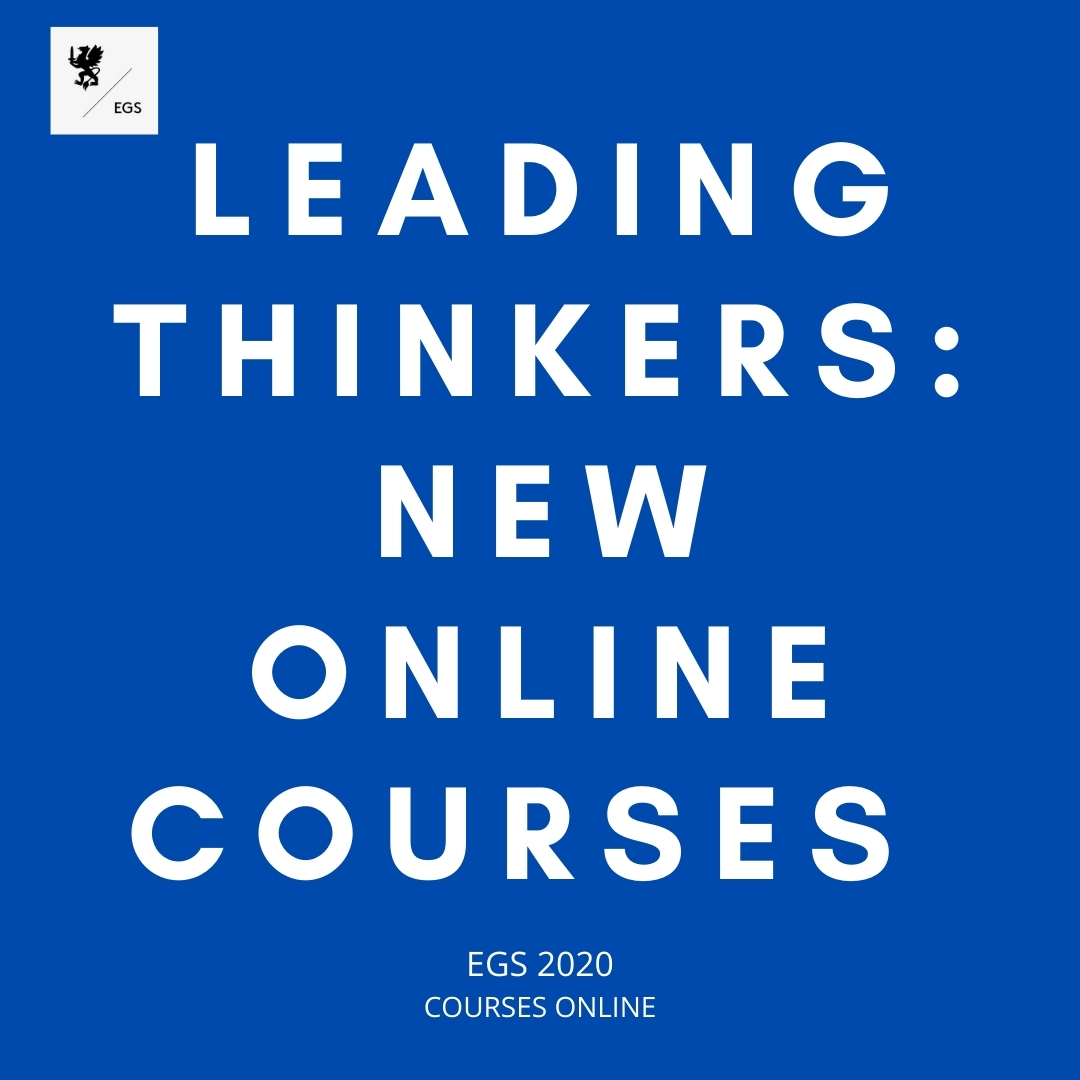Leading Thinkers: New Online Courses

The PACT Division of the EGS is pleased to announce a new online initiative. Starting in January 2020, we will offer 10-week courses devoted to individual philosophers and theorists whose contributions have been vital for the critical thought undertaken at the EGS. These courses will be open to EGS students and general public.
We begin in January with Hegel and Heidegger. Later in the spring, we will feature courses on Lacan and Deleuze.
Our aim in this initiative is to attend to the works of such thinkers in a way that is not possible in a normal EGS seminar, where faculty present original research. EGS professors often call upon the contributions of the thinkers who will be addressed in this series, but normally cannot dwell upon them at length.
We believe that our students will benefit significantly from these new offerings, but we also wish to use this opportunity to open the work of PACT to a broader community.
The courses will be taught by EGS faculty, or individuals associated with the EGS, which means that presentations will be undertaken by accomplished theorists and always geared to the kind of work undertaken in our normal programs. In this respect, they will be master-classes. They will be suitable for those who have not had the opportunity to study these thinkers in depth before, or for those who already have some familiarity with them and seek a stronger overall comprehension. As always at the EGS, the essential prerequisite for study is a strong passion for learning. People from all disciplines are welcome to join us.
Courses will last for 10 weeks and run for one and a half hours per online meeting. The cost per course is $850.
To sign up for these new online courses, please indicate your interest to Dr. Nemanja Mitrovic [nemanja.mitrovic@egs.edu]. You should include in this message a very brief description of your academic and/or professional background. Please also indicate how you learned of these courses. Once he receives your letter of interest, Dr. Mitrovic will send you instructions on how to register. Registered students will then receive access to a Google Drive folder containing the recommended readings.
Professor Christopher Fynsk – An Approach to Heidegger
This course is designed to give students access to the work of one of the most important and challenging thinkers in the 20th century in the continental tradition.
Despite his own deeply conservative inclinations, Heidegger’s path of questioning provided a constant inspiration for some of the most radical thinking in post-war Europe. The projects of Foucault, Derrida, Lacan, and Blanchot were deeply marked by Heidegger’s thought of difference and his writings on language.
The course will seek to open to the foundations of this striking legacy and the continuing importance of Heidegger in the context of the gathering dangers of the ecological crisis. It will touch upon his approach to the question of being in the earlier existential project, the disastrous political engagement of the 1930’s, his critique of technology, and his thought on language and poetry, thereby covering the major moments in his project of thinking.
Professor Frank Ruda – Working Through – Hegel
In recent years, Hegel’s thought has experienced a renaissance, almost a second coming. After having been branded and criticized for representing almost all clichés and everything that was wrong with Western metaphysics, his notoriously difficult to access and assess philosophy seemed to have become compatible with and an inspiration for most divergent contemporary theoretical positions: from neo-materialism through psychoanalysis, from deconstruction to pragmatism, from contemporary critical to even liberal and uncritical theory. What is it in Hegel that can produce such a surprising diversity of theoretical identifications? Is this a symptom that Hegel’s time has finally come or is there something in our time that produces a diversified need of Hegelian philosophy? This course will systematically work through and discuss all essential elements of Hegel’s oeuvre, employ his system as a prism by means of which we will chart the landscape of contemporary theory and it will examine how Hegel’s complex work on “the labor of the negative” also allows us to grapple with most constitutive features of our own time.

